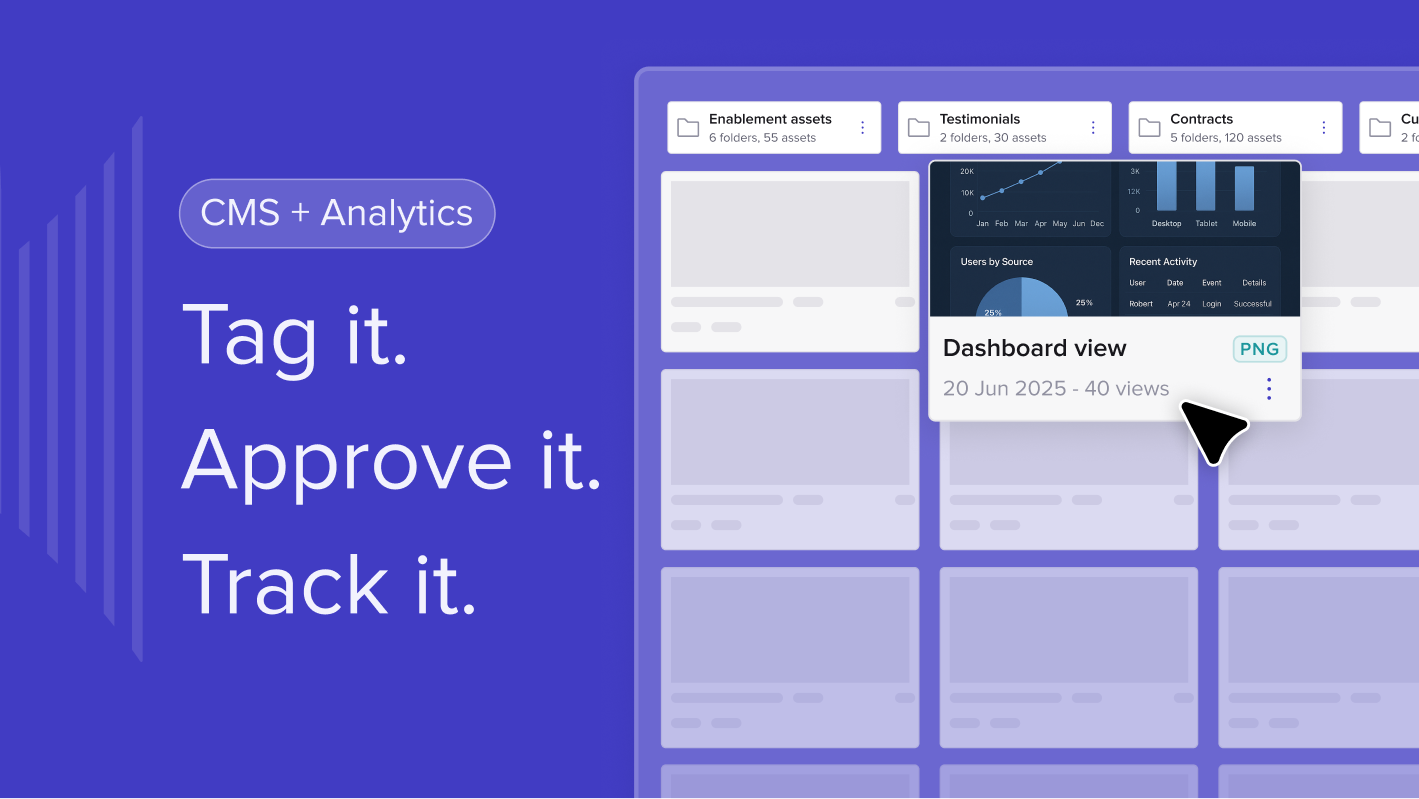Mutual Action Plans (MAPs) are a cornerstone in the architecture of successful B2B sales strategies. They provide a shared guiding document that aligns sales reps and B2B buyers, fostering collaboration and expediting the sales cycle. They define milestones, due dates, roles, and responsibilities, promoting ownership, accountability, and faster deal closure.
Most B2B companies experience a sales process lasting at least four months due to the involvement of numerous stakeholders. B2B buyers spend more time researching and reducing risk factors. With MAPs, sales teams can provide a structured framework that addresses the needs of the sales team and the customer.
Collaborative framework
A MAP is a digital effort to outline the shared goals and responsibilities between a vendor and a customer, fostering a partnership rather than a transactional relationship.
.png)
Strategic benefits
MAPs contribute to stronger customer relationships and ongoing partnerships by setting expectations and demonstrating value early in sales. For instance, Abhishek Shah from Testlify stated, "MAPs helped streamline the deal closure process, resulting in shorter sales cycles and enabling the team to capitalise on opportunities more efficiently." Mutual action plans also improve the B2B sales process with:
- Trust and transparency: MAPs build trust and de-risk deals in B2B sales by defining responsibilities and timelines.
- Enhanced win rates: The strategic use of MAPs has improved win rates by 26%, underlining their effectiveness in guiding sales teams and clients to success.
Implementation and adaptation
Furthermore, mutual action plans offer a structured way for sales reps to engage with buyers. They ensure standardisation with templates and provide a pre-set methodology for sales engagement.
- Customisation and communication: Customising MAPs for customers and regular communication keep the plan relevant and practical during sales.
- Digital transformation: Integrating MAPs into mutual action plan software transforms them from static documents into dynamic, interactive platforms that enhance collaboration.
Strategies employed by successful sales teams
Successful sales teams leverage strategies to enhance collaboration and efficiency using some of the top MAP features. Here are some key strategies:
- Collaboration and communication: Trumpet's MAP facilitates collaboration, transparency, and communication among sales teams, buyers, and customers, reducing confusion and delays in the sales process.
- Streamlining sales: MAP simplifies sales by providing real-time updates, accurate pipeline forecasting, and assigning buyer tasks. This ensures reliable information, improves resource allocation, and creates stakeholder urgency and accountability.
- Comprehensive management tools: Trumpet's MAPs simplify task management for sales teams, reducing admin work. The platform offers real-time updates for improved task, milestone, and deadline management, enhancing sales performance.
These strategies highlight the importance of mutual action plan software and MAP templates in creating a structured and efficient sales process.
Adapting plans to different sales scenarios
Adapting MAPs to different sales scenarios involves a personalised approach, ensuring each plan meets the unique needs of the customer and the specific sales situation. Here’s how successful sales teams customise their MAPs:
Initial setup and stakeholder engagement
Convene a meeting with stakeholders. Use a collaborative document to outline sales workflow and customer milestones. Agree on a timeline for achieving milestones, track progress regularly, and update the MAP. Then, customise the MAP to fit the customer's needs and periodically review and adjust it.
Choosing the right tools
Depending on the complexity of the sales scenario, choose simple document-based MAPs or sophisticated digital sales room software. Consider the customer and sales team's needs while balancing simplicity and detail.
Feedback and continuous Improvement
Feedback is essential for enhancing B2B sales through mutual action plans. It helps gather insights from the sales team and clients, leading to adjustments to the action plan. Continuous improvement leads to stronger partnerships and increased sales effectiveness.
- Gathering feedback: Regular customer check-ins for feedback collection work well with forms and surveys. Mutual action plan software can make the process seamless for real-time adjustments and updates.
- Analysing performance: Review critical metrics and milestones achieved to analyse the deal's outcome. Use case studies to identify best practices for future sales scenarios and improve internal learning.
- Continuous improvement cycle: Update action plan templates and strategies based on feedback and performance analysis. Share insights and strategies to encourage constant learning and adaptation in the sales team.
Trust plays a significant role in B2B buyers' decisions on business partnerships, and the impact of inflation has heightened their wariness. Maintaining price transparency is one of the best ways to build trust with buyers. However, showcasing successful MAP examples provides tangible results.
Brittni Ralston used trumpet's MAPs to keep all parties accountable. She created tailored Pods for each buyer, adding FAQs, pricing, proposal info, and tracked items and discounts offered. This helped her engage buyers and keep them moving forward.
MAPs speed up sales and enhance customer engagement. They target serious buyers, streamline processes, and offer a centralised communication hub. Brittni leveraged MAPs to add interactive checklists, streamline sales content, track buyer engagement, and personalise communication to speed up sales.
Final thoughts
We can’t overstate the pivotal role of mutual action plans in facilitating the success of B2B sales teams. Ineffective B2B sales without clear guidance towards achievement can lead to poor response levels and lengthier sales cycles. More isn't always better, and with expanding options, about 40% of B2B sales result in buyers second-guessing themselves.
Implementing mutual action plan software can help companies foster interactivity, responsiveness, and success. It's an innovative tool that can help forge lasting partnerships beyond the initial deal.

.svg)
.svg)
.svg)
.svg)
.svg)
.svg)
.svg)
.svg)
.svg)
.png)
.svg)
.svg)
.svg)
.svg)

.svg)
.svg)
%201.svg)
.svg)
%201.svg)



.svg)






















![How to Get Started with Buyer Enablement [With Examples]](https://cdn.prod.website-files.com/65cf4fecbed2754c2236665d/65cf4fecbed2754c22366bdb_65a5af83e742f76e34ce06f3_Customer%2520Onboarding%2520_%2520Everything%2520you%2520need%2520(2).png)
.png)



.png)



.png)









.png)


.png)

.png)
.png)







